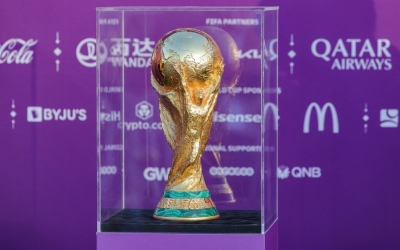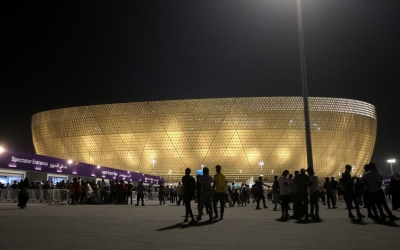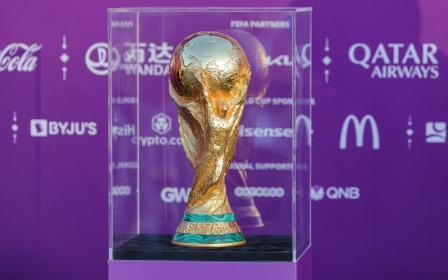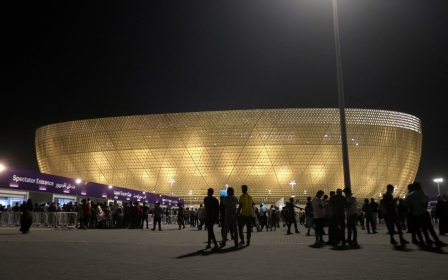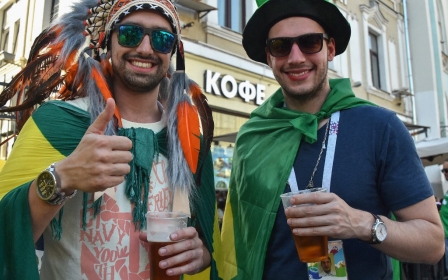Qatar World Cup 2022: Civilians conscripted for security duties during tournament
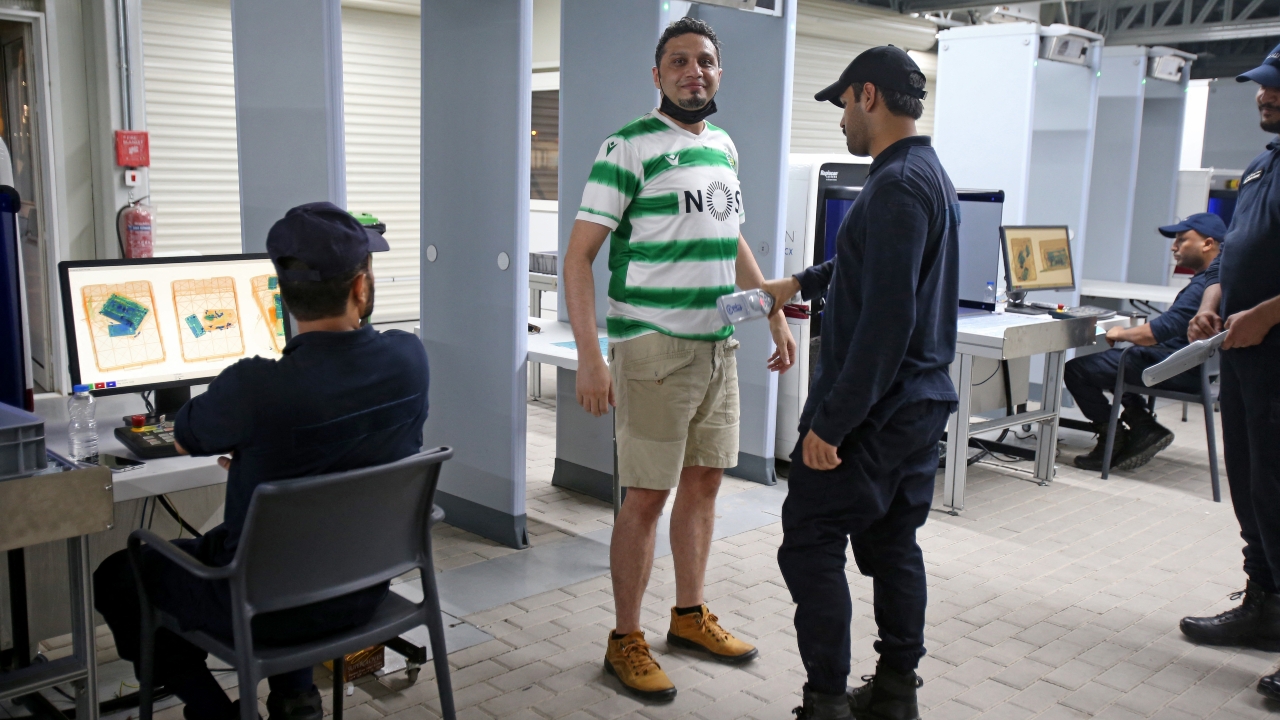
Qatar has called up hundreds of civilians, including diplomats summoned back from overseas, for mandatory military service operating security checkpoints at World Cup stadiums, according to a source and documents seen by Reuters.
The deployment of conscripts, some of whom would normally defer national service because their work is considered vital, highlights the logistical challenge faced by the tiny Gulf state hosting one of the world's biggest sports tournaments.
The conscripts are training to manage stadium security queues, frisk fans and detect contraband like alcohol, drugs or weapons concealed in ponytails, jacket linings or even false bellies, according to training materials seen by Reuters.
The current group of civilians are on four months paid leave from their jobs at key Qatari institutions like state-owned QatarEnergy and the foreign ministry, the source said.
Qatar has a population of 2.8 million - of which around 380,000 are Qatari nationals - and expects an unprecedented influx of 1.2 million visitors for the tournament.
New MEE newsletter: Jerusalem Dispatch
Sign up to get the latest insights and analysis on Israel-Palestine, alongside Turkey Unpacked and other MEE newsletters
It already has an agreement with Turkey which is supplying 3,000 riot police.
Earlier this month, the civilians were ordered to report for pre-dawn duty at the national service camp north of the capital Doha, according to Reuters, less than three months before the 29-day tournament kicks off on 20 November.
'Patriotic duty'
Those called up were told they were to assist with the World Cup and that it was their "patriotic duty" to do so, the source said.
"Most people are there because they have to be - they don't want to get in trouble," the source said.
Some volunteers are also training alongside the conscripted force, according to the source, who has direct knowledge of the plan and the training.
Asked for comment by Reuters, a Qatari government official said in a statement that Qatar's national service programme would continue as normal during the World Cup.
"Recruits will provide additional support during the tournament as part of the regular programme, just as they do every year at major public events, such as the National Day celebrations," the statement added.
Since 2014, Qatari men aged between 18 and 35 have trained with the military for at least four months as part of mandatory national service introduced by the emir, Sheikh Tamim bin Hamad Al Thani.
Dodging the duty can incur a year in prison and a fine of 50,000 Qatari rials ($13,700).
'Positive body language'
In past years, Qatari conscripts have participated in national day celebrations and arrangements for the national sports day. Diplomats abroad have been able to defer their service.
Qatar has brought diplomats home from several overseas missions, including in the United States, China and Russia, the source said. The diplomats are expected to return to their posts after the World Cup.
Conscripts report to the national service camp five days a week, where they attend training sessions conducted by officials from the security division of Qatar's World Cup organisers, the Supreme Committee for Delivery and Legacy, the source said.
They are taught to approach fans with "positive body language, focus and a smile," the source said, to abide by the Universal Declaration of Human Rights, and avoid discriminating against fans on any basis, the source said.
Training also includes hour-long marching drills on the parade ground.
'Never-ending issues'
Earlier this month, the first event to be held at the stadium that the World Cup final will be held in was marred with widespread issues, including water shortages, a lack of air conditioning and long walks in 35-degree heat.
Over 77,000 people attended the Lusail Super Cup at Qatar’s Lusail Stadium on 9 September, which saw Saudi team Al-Hilal beat Egypt’s Zamalek in a penalty shootout after a 1-1 draw.
But fans were left frustrated by disorganisation and “never-ending issues”, according to a report in Doha News, a Qatari news website.
Supporters told the outlet that some parking lots allocated for fans did not offer bus shuttle services to the stadium, leaving them walking for over 45 minutes in 35 degree heat to reach the venue.
Many dehydrated fans, including children, had their bottled water taken away from them once they reached the venue, due to the stadium’s rules. They then struggled to purchase food or drinks, which most vendors had run out of.
World Cup organisers intend to relax Qatar's strict laws limiting the public sale of alcohol, and will allow beer to be served near stadiums a few hours before matches kick off.
Middle East Eye delivers independent and unrivalled coverage and analysis of the Middle East, North Africa and beyond. To learn more about republishing this content and the associated fees, please fill out this form. More about MEE can be found here.


